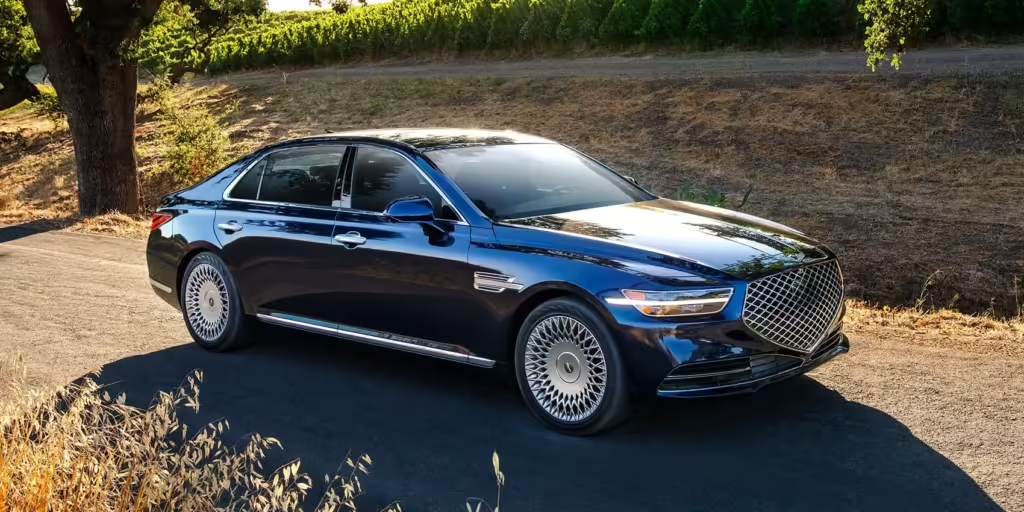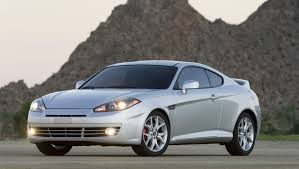
Korean luxury cars have made a remarkable transformation over the past decade. Once known primarily for affordability and reliability, Korean automakers like Hyundai and Kia have elevated their brands with the introduction of luxury lines such as Genesis, along with premium models within the Hyundai and Kia portfolios. Korean luxury cars are now competing head-to-head with European, Japanese, and American brands by offering cutting-edge technology, refined design, and powerful performance—all while maintaining a relatively lower price point.
Let’s explore what’s new and upcoming in the world of Korean luxury cars, focusing on design trends, technology advancements, performance upgrades, and the growing prominence of electric vehicles (EVs).
1. Genesis: Korea’s Premier Luxury Brand
The standout name in Korean luxury cars is Genesis, the luxury division of Hyundai. Since its launch in 2015, Genesis has rapidly become synonymous with sophisticated design, luxurious interiors, and advanced driving technology. Here’s a closer look at the newest developments from the brand:
a) Genesis GV80 Coupe:
The GV80 Coupe is one of the latest introductions in the Genesis lineup. It takes inspiration from the popular GV80 SUV but offers a sportier and more dynamic design, competing directly with luxury SUVs from brands like BMW and Mercedes-Benz. The coupe emphasizes athletic performance without sacrificing luxury, blending sleek lines with a commanding road presence.
The interior of the GV80 Coupe features high-end materials like Nappa leather, real wood trim, and metal accents, creating an atmosphere of elegance and refinement. Additionally, it comes equipped with advanced driver-assistance systems (ADAS) and an augmented reality (AR) navigation system, showcasing Genesis’ commitment to cutting-edge technology.
b) Genesis G90 Facelift:
The flagship Genesis G90 sedan has received a stunning facelift, emphasizing modern luxury with a futuristic design. The new G90 features a refined version of the brand’s “Athletic Elegance” design language, with a more aggressive front grille, sleeker LED headlights, and a fastback rear. Inside, the G90 is more spacious and opulent than ever, offering massage seats, a premium audio system, and a minimalist yet high-tech dashboard.
The G90 also introduces a new level of autonomous driving features, including hands-free highway driving capabilities, making it one of the most technologically advanced luxury sedans on the market.
2. Luxury Electric Vehicles (EVs)
Korean automakers are leading the charge in the electrification of luxury cars. As the global automotive industry shifts toward sustainable driving solutions, Korean luxury brands are introducing highly advanced electric vehicles that combine premium features with eco-friendly technology.
a) Genesis GV60:
The Genesis GV60 is the brand’s first fully electric luxury SUV, built on the Electric-Global Modular Platform (E-GMP), which it shares with Hyundai’s Ioniq 5 and Kia’s EV6. However, the GV60 is far more than just a luxury iteration of these models—it offers exclusive luxury features, higher performance, and a refined design.
The GV60 focuses on delivering a premium driving experience with a high-tech interior, featuring a 12.3-inch digital dashboard, biometric recognition (such as fingerprint and facial recognition for starting the vehicle), and a “Crystal Sphere” gear selector that glows and rotates when the car is powered on. Its dual-motor setup provides impressive acceleration, allowing for rapid speed while maintaining excellent range.
b) Hyundai Ioniq 7:
Although primarily branded under Hyundai, the Ioniq 7 promises luxury crossover features that cater to the high-end electric market. The Ioniq 7 is expected to debut with a futuristic, minimalist design, focusing on spaciousness, cutting-edge tech, and sustainability. With three rows of seating and a vast interior, the Ioniq 7 will blend luxury with practicality, making it suitable for families seeking eco-friendly luxury.
3. Performance Enhancements
While Korean luxury cars have historically focused on design and comfort, there has been a significant push toward performance-oriented models in recent years.
a) Genesis G70:
The Genesis G70 has undergone recent updates to improve both performance and luxury. Available with a turbocharged 3.3L V6 engine, the G70 has become a serious competitor in the sports sedan segment, challenging cars like the BMW 3 Series and Audi A4. The latest G70 offers a balanced mix of sharp handling, impressive acceleration, and luxurious interior appointments.
The newest G70 also features adaptive suspension, multiple drive modes, and enhanced steering precision, providing drivers with a more engaging driving experience. This sports sedan aims to appeal to both enthusiasts looking for performance and luxury seekers who prioritize comfort.
b) Kia Stinger:
Although Kia is generally not considered a luxury brand, the Kia Stinger has proven to be an exception. This sport sedan, which has received performance upgrades for its latest iteration, has established Kia as a serious player in the luxury-performance market. The 2024 Kia Stinger GT comes with a 3.3L twin-turbocharged V6 engine capable of 368 horsepower, delivering thrilling acceleration and dynamic handling.
The Stinger’s performance credentials are matched by a high-end interior, with leather seats, advanced infotainment, and premium materials throughout. The car also includes advanced safety features like forward collision avoidance and lane-keeping assist, positioning it as a luxury sports sedan without the hefty price tag of its German competitors.
4. Interior Design and Comfort
Korean luxury cars are known for providing exceptional value in terms of interior quality and comfort. Recent models have taken this a step further by offering a range of premium materials, innovative layouts, and a serene cabin experience.
a) Minimalist Luxury:
Korean luxury cars, particularly those from Genesis, have embraced minimalist design trends. New models showcase interiors with clean lines, reducing clutter by consolidating controls into sleek touchscreens or haptic feedback panels. The use of premium materials such as soft-touch leather, real wood, and brushed metal enhances the sense of luxury and refinement.
b) Advanced Infotainment:
The latest luxury models from Korean automakers feature state-of-the-art infotainment systems. Genesis vehicles, for example, include large curved OLED displays, voice-controlled interfaces, and seamless smartphone integration (Apple CarPlay and Android Auto). In-car entertainment options include high-quality audio systems from brands like Lexicon and Bang & Olufsen, ensuring a premium sound experience.
Moreover, many models include ambient lighting, customizable seating positions with memory functions, and advanced climate control systems that offer multi-zone temperature settings and even scent diffusers.
5. Autonomous Driving and Safety Features
Safety and driver assistance technology are becoming hallmarks of Korean luxury cars. Genesis, in particular, is at the forefront of autonomous driving innovations.
a) Highway Driving Assist II:
The Highway Driving Assist II system in Genesis vehicles represents one of the most advanced semi-autonomous systems on the market. It uses a combination of cameras, radar, and lidar sensors to allow for hands-free driving on certain highways, adaptive cruise control, and automated lane changes. The system continues to improve with every iteration, bringing Korean cars closer to full autonomy.
b) Remote Smart Parking Assist:
New models are also equipped with features like Remote Smart Parking Assist, which allows the car to park itself in tight spaces with minimal driver input. This feature is ideal for city dwellers and further elevates the luxury experience by offering convenience at the touch of a button.
Conclusion
Korean luxury cars have emerged as serious competitors in the global automotive market, offering a unique combination of cutting-edge technology, opulent design, strong performance, and electric innovation. With brands like Genesis leading the charge, and new models like the GV80 Coupe, GV60 electric SUV, and Kia Stinger pushing boundaries, the future of Korean luxury cars looks bright. As the market continues to evolve, expect Korean automakers to set new standards in luxury, performance, and sustainability.
